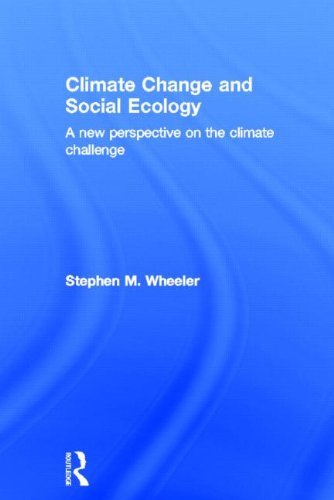

Most ebook files are in PDF format, so you can easily read them using various software such as Foxit Reader or directly on the Google Chrome browser.
Some ebook files are released by publishers in other formats such as .awz, .mobi, .epub, .fb2, etc. You may need to install specific software to read these formats on mobile/PC, such as Calibre.
Please read the tutorial at this link: https://ebookbell.com/faq
We offer FREE conversion to the popular formats you request; however, this may take some time. Therefore, right after payment, please email us, and we will try to provide the service as quickly as possible.
For some exceptional file formats or broken links (if any), please refrain from opening any disputes. Instead, email us first, and we will try to assist within a maximum of 6 hours.
EbookBell Team

0.0
0 reviewsAlthough strategies to prevent global warming – such as by conserving energy, relying on solar and wind power, and reducing motor vehicle use – are well-known, societies have proved unable to implement these measures with the necessary speed. They have also been unwilling to confront underlying issues such as overconsumption, overpopulation, inequity, and dysfunctional political systems. Political and social obstacles have prevented the adoption of improved technologies, which would provide only a partial solution in any case if the fundamental causes of greenhouse gas emissions aren’t addressed.
Climate Change and Social Ecology takes a new approach to the climate crisis, portraying global warming as a challenge of rapid social evolution. This book argues that, in order to address this impending catastrophe and bring about more sustainable development, we must focus on improving social ecology – our values, mind-sets, and social organization. Steps to do this include institutional reforms to improve democracy, educational strategies to encourage public understanding of complex issues, and measures to prevent corporations and the wealthy from shaping societies in other directions instead. This book presents a captivating vision of how to help social systems evolve toward sustainability and explores the social transformations needed for dealing with the climate crisis in the long term. It reviews the climate change strategies considered to date, presents a detailed description of a future sustainable society, and analyzes how this vision might be realized through more conscious public nurturing of our social systems.
This interdisciplinary volume provides a compelling rethink of the climate crisis. Authoritative and accessible, it will be of great interest to anyone concerned about climate change and sustainability challenges and is essential reading for students, professionals, and general readers alike.